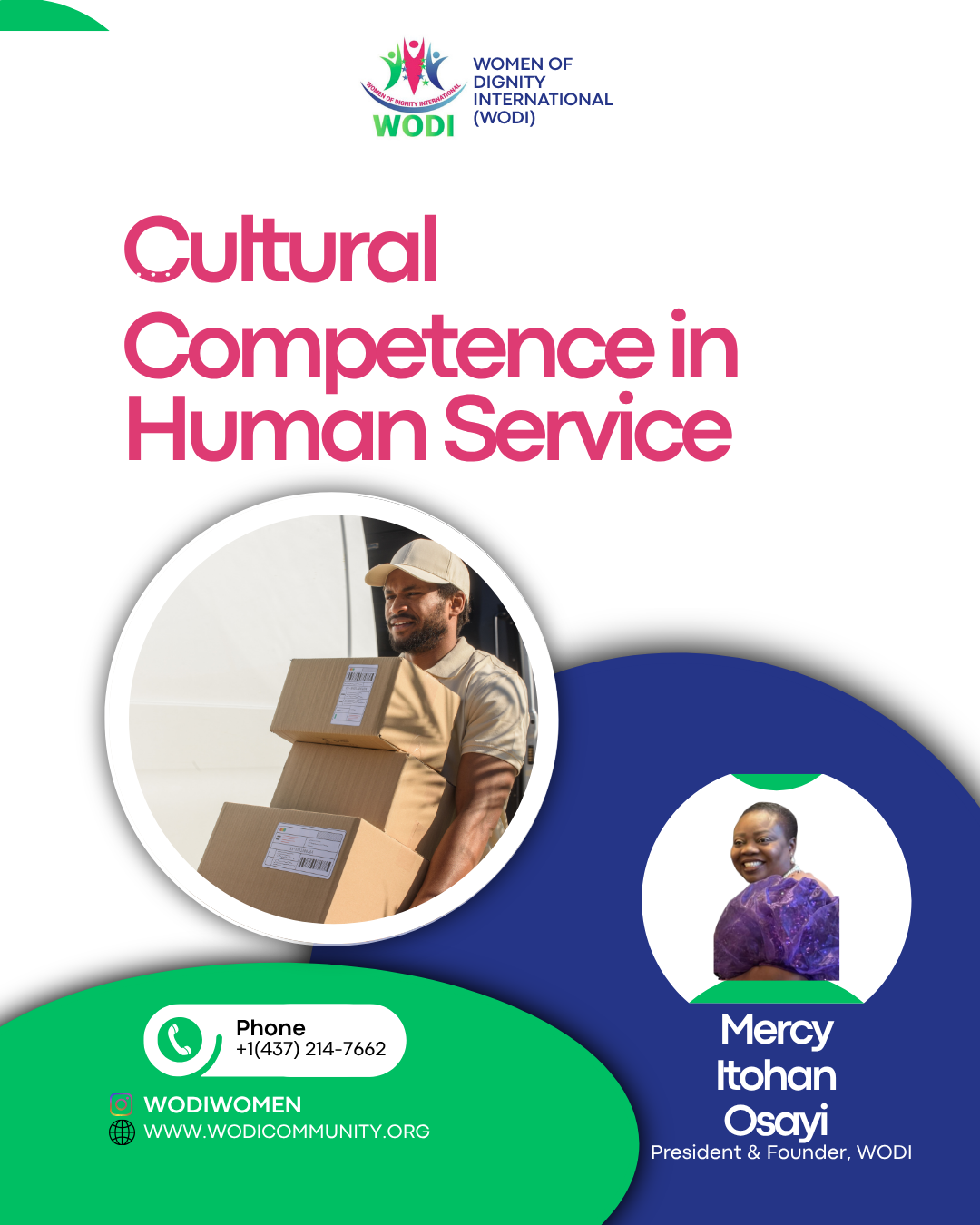Cultural Competence in Human Services

Cultural Competence in Human Services
Cultural competence is an essential skill in human services. It refers to the ability to understand, respect, and effectively work with people from different backgrounds, cultures, and beliefs. In our diverse society, being culturally competent is not just a nice-to-have; it’s a necessity for providing quality support and services to everyone.
Understanding Cultural Competence
At its core, cultural competence means recognizing that everyone has their own unique experiences shaped by their culture, race, ethnicity, gender, sexuality, religion, and other factors. This understanding helps human service professionals connect with clients on a deeper level. It involves being open-minded and willing to learn about others’ perspectives and experiences.
Why It Matters
1. Building Trust: When service providers show respect for a client’s cultural background, it helps build trust. Clients are more likely to share their thoughts and feelings when they feel understood and valued.
2. Effective Communication: Different cultures have different ways of communicating. Being culturally competent allows professionals to adapt their communication styles to meet the needs of their clients. This can lead to better understanding and cooperation.
3. Better Outcomes: When services are tailored to fit the cultural context of clients, the outcomes improve. Clients are more likely to engage with services that acknowledge and respect their cultural identities.
4. Reducing Bias: Cultural competence helps reduce biases and stereotypes. By learning about different cultures, human service professionals can challenge their own assumptions and provide fairer treatment to all clients.
How to Develop Cultural Competence
1. Education and Training: Ongoing education about different cultures, social issues, and historical contexts is crucial. Workshops and training sessions can provide valuable insights into the lives of diverse populations.
2. Self-Reflection: Professionals should regularly reflect on their own beliefs and biases. Understanding one’s own cultural background can help in recognizing how it influences interactions with others.
3. Active Listening: Listening to clients without judgment is vital. It shows that you value their experiences and opinions, fostering a safe space for open dialogue.
4. Engagement with Communities: Building relationships with different communities can enhance understanding. Attending cultural events or collaborating with community leaders can provide real-world insights.
5. Feedback and Adaptation: Seeking feedback from clients about the services provided can help identify areas for improvement. Adapting practices based on this feedback ensures that services remain relevant and respectful.
Conclusion
Cultural competence is about more than just understanding differences; it’s about embracing them. In human services, being culturally competent means creating an inclusive environment where everyone feels respected and valued. By prioritizing cultural competence, we can improve our services and make a positive impact on the lives of those we serve. In a world that is increasingly diverse, this skill is not just important; it is essential for effective human service delivery.
